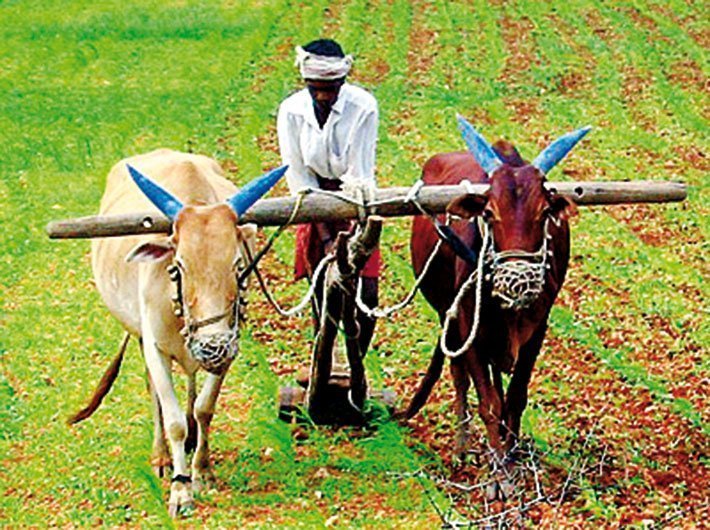Demands for farm loan waivers have emerged at a time when state finances have been deteriorating, said economic survey
Farm loan waivers could reduce aggregate demand by as much as 0.7 percent of GDP, imparting a significant deflationary shock to an economy yet to gain full momentum, said the Economic Survey 2016-17 Volume 2.
The survey said that loan waivers will result in higher borrowing by the states with fiscal space. This could squeeze out private spending by firms. Analysis by J.P Morgan suggests that yields on corporate bonds have already risen by about 40 basis points post-Ujwal DISCOM Assurance Yojana (UDAY).
Also bank balance sheets will improve to the extent that non-performing farm loans are taken off their books. So they might be able to provide additional financial resources to the private sector, leading to greater spending. A World Bank study found that lending increased following the 2008-09 waiver even if not in the districts with greater exposure to the waiver.
“It is estimated that these two effects would almost cancel each other,” said the survey that was tabled in parliament on August 11.
On the total impact of loan waiver, the survey said: “Adding up these effects yields an impact on aggregate demand of minus Rs 1.1 lakh crore11. In other words, loan waivers could reduce aggregate demand by as much as 0.7 percent of GDP, imparting a significant deflationary shock to an economy yet to gain full momentum. Note, however, that this is an upper bound. The actual impact will depend on the number of states that actually decide to grant waivers, and how they distribute them over time.”
It added that loan waivers will increase the net wealth of farm households. “Wealth data is not available, it is assumed that net income will increase by the amount of loans waived off (whereas in fact this year’s disposable income rises by only the debt service forgiven). Using cross-sectional data on farm households, a consumption elasticity out of (temporary) income of about 0.25 is estimated.”
The survey noted that since loan waivers are assumed to increase aggregate income by 28 percent, consumption is estimated to increase by 7 percent or about Rs. 55,000 crore. This estimated consumption impact is on the higher side because the World Bank study on the “Agricultural Debt Waiver and Debt Relief Scheme” of 2008-09 found that consumption did not rise after the loan waivers.
On the public sector, the survey said that this impact will in turn depend upon the extent of fiscal space that state governments have under their respective fiscal responsibility legislations (FRLs).
“The key intuition is that loan waivers involve spending that does not add to demand (because these are liability transfers to the states’ balance sheets) but the actions taken to meet FRL targets (higher taxes and/or lower expenditure) will reduce demand. It is estimated that for states with fiscal space, loan waivers would add about Rs. 6,350 crore to demand via the additional interest costs. For states without space, waivers could reduce demand by about Rs. 1.9 lakh crore. The net effect of aggregating over the two cases state by state yields a reduction in aggregate demand of close to Rs. 1.9 lakh crore,” it said.
The survey went on to say that demands for farm loan waivers have emerged at a time when state finances have been deteriorating. The UDAY scheme has led to rising market borrowings by the states, expected soon to overtake central government borrowings. As a result, spreads on state government bonds relative to g-secs have steadily risen by about 60 basis points been specific about the waiver schemes: UP has announced waivers of up to Rs. 1 lakh for all small and marginal farmers; Punjab’s limit is Rs. 2 lakh for small farmers without defining who these are; and Karnataka has limited the waiver amount to Rs. 50,000 (Maharashtra’s waiver terms are still unclear).
“It is assumed that waivers will apply at the loan rather than household level, since it will be administratively difficult to aggregate loans across households. It is also assumed that other states will follow the UP model. On this basis, an upper bound of loan waivers at the All-India level would be between Rs. 2.2 and Rs. 2.7 lakh crore.”
